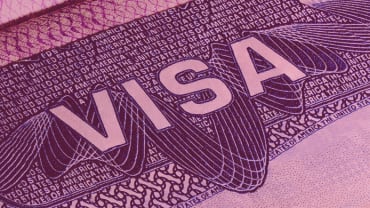The President of Employment Tribunals (Scotland) has issued a new Practice Direction and accompanying Presidential Guidance on the use of witness statements in employment tribunal cases. These apply to hearings scheduled to take place in Scotland on or after 1 October 2022 and cover all witness statements other than expert witness statements and reports.
Background
Anyone who has been involved in a Scottish employment tribunal hearing will know that the traditional approach to deciding claims involves hearing the evidence 'from the horse's mouth' – i.e., by way of witnesses in person and orally. That usually means that anyone with relevant evidence to give to the tribunal will attend the hearing and provide it verbally before answering questions put to them by any other party and the tribunal itself. And those involved in tribunal claims south of the border will equally know that the normal approach there is different – a witness will give their main body of evidence in advance in the form of a written statement which will be taken as read, and be cross-examined on it by their opposition.
The approach followed in Scotland, consistent with its courts, is based on the 'best evidence' principle. What a person tells the tribunal under oath and face to face is considered more likely to be true and reliable – or where it is not then that should be easier to notice. Written witness statements are sometimes used in Scotland to provide evidence in chief, but more by exception and only if justified.
Up until now there have been no written rules relating to the Scottish approach and when it may be departed from. The Practice Direction and Guidance cover a number of aspects of the use of witness statements, and some are discussed below.
When might witness statements be ordered in Scotland?
The presumption remains that where evidence in chief is to be given by a witness to an employment tribunal in Scotland, that evidence will be given orally, without using a witness statement. However, if it is in the interests of justice to do so, a tribunal can order, of its own motion or on application by a party, that all or part of witness' evidence in chief may be given by means of a witness statement. An order can only be made following consultation with the parties, and written reasons will be provided.
Any party wanting to use witness statements should make an application to the tribunal (copied to all other parties) 'as early in the proceedings as possible', explaining why they consider that it would be in the interests of justice to grant the order.
The relevant factors for tribunals to consider when deciding whether witness statements should be ordered are set out in the Presidential Guidance.
Employment tribunals already have a duty as part of their overriding objective to ensure that the parties are on an equal footing. This often comes into play when there is a mix of represented and unrepresented parties. Judges will need to consider whether ordering written statements will put an unrepresented party, or one with limited resources, at a disadvantage. Each case will be different.
What format must a witness statement be in, and what should it include?
The Practice Direction sets out some requirements of a witness statement, for example it must describe in an introductory paragraph how it was taken e.g., by face-to-face or telephone interview between the witness and their representative. Statements must also now contain a confirmation of truth from the witness. If a professional representative has been involved in the preparation of the statement, they must explain the new rules to the witness and provide their own confirmation that this has been done. There is mandatory wording for these in the Practice Direction.
Also, insofar as possible, taking into account the resources available to the parties, witness statements should be in a format which accords with paragraph 7 of the Presidential Guidance. The rules include using headings and numbered paragraphs and inserting a list of the documents referred to at the end of the statement.
Preparing witness statements
The Practice Direction and Guidance have information on the content and preparation of witness statements. For example, representatives involved in the preparation of a witness statement should 'strive to ensure that', among other things, they ask open (and not leading) questions when eliciting evidence and do everything possible to ensure that they do not put words into the mouth of the witness.
Exchanging and using witness statements
The judge will set out the procedure to apply to the use of witness statements including, for example:
- whether and when they are to be exchanged
- whether and when witnesses of one party are to see the statements for the other party
- the circumstances in which supplementary statements and additional oral evidence may be given
- whether witness statements will be taken as read at the hearing (the default being that they will)
Where the parties are represented, unless the judge decides otherwise, witnesses are not to see the statements of any other witnesses for the same party prior to giving their evidence. This may create a challenge for a party calling multiple witnesses.
Every witness must still attend the tribunal hearing so that they may (a) take the oath or affirm in connection with the truthfulness of their statement; and (b) be subject to cross examination by any other party and questioning by the tribunal.
Other than in exceptional circumstances, all witnesses will remain outside of the tribunal hearing room until they are called to give their evidence. This is different from the position in England and Wales where often a witness will be able to observe others giving evidence in the hearing room before taking their own turn.
In practice
Oral evidence in chief is still the default position in Scotland, and it remains to be seen to what extent the use of witness statements will increase in tribunal proceedings. What is clear is that those involved in bringing or defending claims need to review the new Practice Direction and Presidential Guidance so that they are fully aware of the circumstances in which witness statements may be ordered; and how witness statements should be prepared, formatted, and used.
Brodies Employment and Immigration team has extensive tribunal litigation expertise: please get in touch for assistance with a claim, or for more information in relation to any of the issues raised in this blog.
Contributors
Legal Director
Practice Development Lawyer












